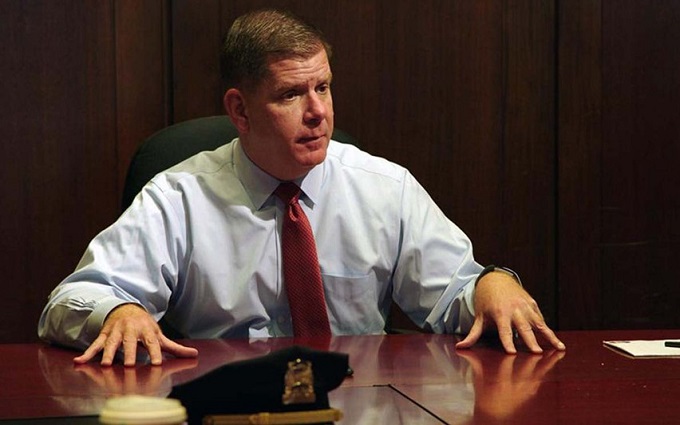City Hall Review TIFF 2020

The Plot
A monumentally vast documentary capturing the full tapestry of Boston city services in painstaking detail, giving a uniquely sprawling portrait of the daily y functional reality of the life of a major city.
The Good
Frederick Wiseman is a uniquely passionate and through filmmaker who has dedicated a lifetime to capturing America on screen in over 40 non-fiction films. Returning again to his home state of Massachusetts’s for a third time he embarks on the truly ambitious project of capturing the fill scope of one of the country’s most iconic cities.
Filmed across the course of a year from 2018 to 2019 the film now serves as a time capsule of the last days of a pre-2020 normalcy. The film’s extensively massive archive of daily life in the narrow corridors of local power is a stark insight into the banal realities of local government.
The film’s principal figure Democratic Mayor Marty Walsh is a potentially interesting counterpoint to the much vilified rhetoric of Donald Trump. His frequent reflections on environmentalism, gender equality and diversity reflect upon increasingly divisive issues in American society. These topics rendered all the more urgent but by the rising tensions within a city that has witnessed seismic shifts in demographics and economic fortunes.
For an understated local politician Mayor Walsh is at least a slightly intriguing figure. Having emerged from personal traumas and blue collar roots into a prominent position of local political power. Faced with at times the myriad of complex issues that afflict all major American cites today his occasional contributions are among the film’s most seemingly meaningful.
The Bad
Wiseman’s work may be uniquely detailed and complete as a record of the subject matter he explores but with a run time of over four and a half hours this is a truly daunting commitment form an audience. Perhaps in an era of dedicated binge watching culture that won’t prove as off-putting as it would undoubtedly have been in the past, but many may still balk at the challenge of this vast sprawling piece of documentary cinema.
For many people it will be simply exhausting to be plunged into seemingly endless administrative meetings and policy debates. The constant slog of the mundane minutia of city services can be difficult to wade through. Though endlessly intercut with shots of the cityscape, there’s something a little sterile and static about this barrage of imagery. It’s just soundless flashes of a cityscape devoid of life and meaning. It doesn’t serve as nearly an effective enough break from the films main body of conversation.
The film is so slow moving and packed with rambling ordinary conversations about absurdly local political concerns that it’s difficult to discern any wider meaning from it. In truth the goal of a documentary should be perhaps to capture the spirit of a topic or make some form of constructive commentary on it. The film sometimes feels as if the filmmakers merely left the camera running for a year in local government offices and meeting halls, merely to publish the hastily assembled raw footage.
At a time when the world is more politicized and burdened with headline level problems than ever the prospect of having to endure the reality of being trapped in meetings full of political jargon and the well intentioned ramblings of administrative staff and activists. If the goal of the film is merely to give audiences the actual experience of literally being trapped in that endless cycle of largely pointless discussions and navel gazing administrative bureaucracy, then it has most definitely succeeded.
Unfortunately the film’s unfocused and painfully dull qualities leave it impossible to discern any meaningful purpose to the exercise. Turing a camera on real life without any filter for irrelevance and banality makes you wonder why you even bothered recording in the first place.
Regrettably the vast gulf in quality between this film and the astonishing pieces of documentary cinema showcased elsewhere in the festival is a little embarrassing. It’s a piece of static white noise in contrast to symphonies.
The Ugly Truth
Frederick Wiseman continues his ambitious efforts to document America on screen with another ambitiously long but diligently assembled portrait of a city and those responsible for its most basic functions. Sadly the film’s vast unwieldy run time and slow moving mundane qualities will likely discourage all but the most hardened enthusiasts of local politics. It’s unfortunately very difficult to discern what if any purpose Wiseman has in assembling such a sprawling unnecessary archive of some of the dullest elements of daily life.
Review by Russell Nelson